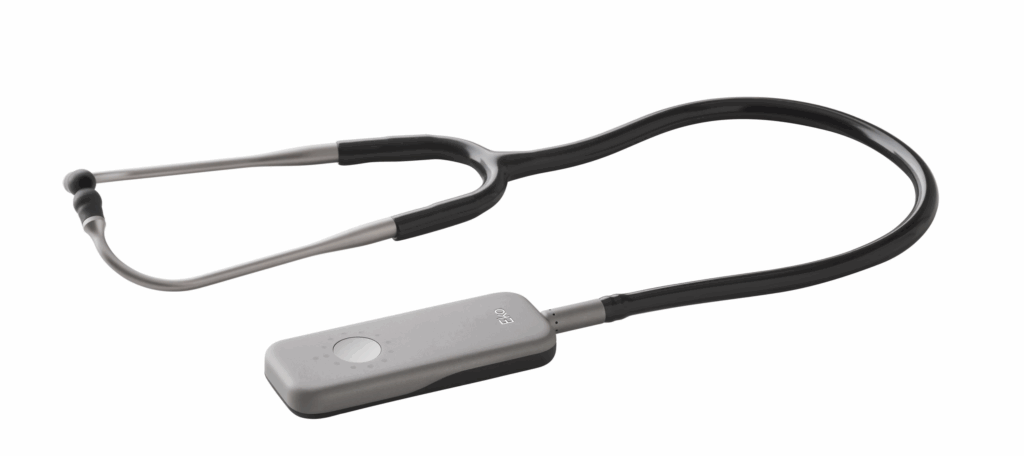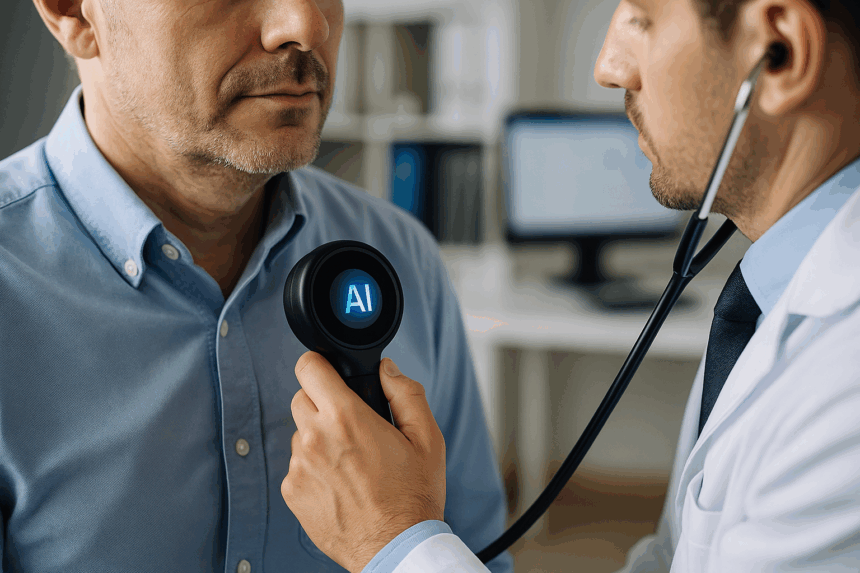Doctors in the UK have unveiled a breakthrough AI-powered stethoscope that detects heart problems in just 15 seconds. Developed by Imperial College London and Imperial College Healthcare NHS Trust, the device represents one of the first major updates to the stethoscope since its invention in 1816. By combining sound analysis with a rapid electrocardiogram (ECG), the tool identifies conditions such as heart failure, heart valve disease, and atrial fibrillation far earlier than traditional methods.
What’s Happening & Why This Matters
A 200-Year-Old Tool Reinvented
For over two centuries, the stethoscope has been an essential component of every doctor’s toolkit. Yet, its core design remained unchanged. The AI-enhanced version transforms that simplicity into a diagnostic powerhouse. Using advanced microphones and cloud-based algorithms, the device can detect subtle changes in heartbeat patterns and blood flow that a human ear cannot. Results are delivered in seconds, directly to a smartphone.
Dr. Patrik Bächtiger, from Imperial’s National Heart and Lung Institute, described the achievement:
“The design of the stethoscope has been unchanged for 200 years – until now. A smart stethoscope can deliver results in seconds, flagging patients at risk of heart failure or atrial fibrillation before they end up dangerously ill.”
Large-Scale Trials Show Promise
The device was tested in a trial involving 12,000 patients across 200 GP surgeries in the UK. Patients showing early symptoms such as fatigue or breathlessness were assessed. Results revealed that those examined with the AI stethoscope were:
- Twice as likely to be diagnosed with heart failure.
- Three times more likely to be diagnosed with atrial fibrillation.
- Nearly twice as likely to be diagnosed with heart valve disease.

This early intervention is critical. Many patients today are only diagnosed when they arrive at emergency departments with severe complications. Dr. Mihir Kelshiker, another researcher on the project, explained: “Most people with heart failure are only diagnosed when they arrive in A&E seriously ill. This trial shows AI-enabled stethoscopes could change that, giving GPs a quick tool to spot problems earlier.”
Backed by Trusted Institutions
The research is supported by the British Heart Foundation (BHF) and the National Institute for Health and Care Research (NIHR). Dr. Sonya Babu-Narayan, BHF’s clinical director, noted that early detection translates directly into lives saved:
“Given an earlier diagnosis, people can access the treatment they need to help them live well for longer.”
Professor Mike Lewis, NIHR’s scientific director for innovation, added that the technology could reduce both costs and mortality:
“This tool could be a real gamechanger for patients, bringing innovation directly into the hands of GPs.”
Potential Risks and Responsible Use
Researchers acknowledge that the tool has a higher likelihood of false positives, meaning some patients are incorrectly flagged as being at risk. They strongly note that the AI stethoscope should be used for patients who are already showing symptoms, rather than as a routine screening tool for healthy individuals. Even so, the balance between risk and reward leans heavily toward saving lives through faster diagnoses.
TF Summary: What’s Next
The AI stethoscope represents a serious advancement in everyday medical practice, compressing what once took hours or days into mere seconds. While the tool is still under careful study, its integration into GP offices across the UK could reduce emergency hospitalisations and cut healthcare costs tied to late-stage diagnoses. If rolled out globally, it has the potential to redefine the detection and treatment of heart disease.
As research expands, expect regulatory reviews, scaling of production, and possibly integration with other AI-driven diagnostic platforms. For now, this innovation signals a future where AI tools assist frontline clinicians, providing faster and more reliable insights to keep patients healthier for longer.
— Text-to-Speech (TTS) provided by gspeech


